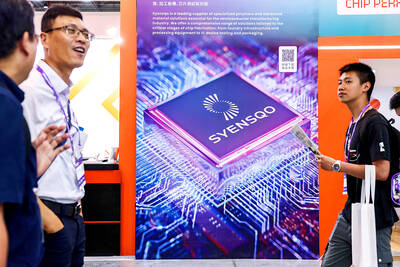China has started tracking down some of its citizens living abroad to collect taxes, surprising expatriates who never had to pay levies back home on overseas income, people familiar with the matter said.
State-owned enterprises operating in Hong Kong, which has one of the lowest tax rates in the world, have told Chinese expats to declare their income for last year so that they can pay taxes at home, said the people, who asked not be named because they are not authorized to speak publicly on the matter.
Chinese state-owned enterprises are also informing employees working in other nations, such as Singapore, two of the people said.
China, which charges taxes of as high as 45 percent, revised its income tax rules in January last year to help authorities start collecting money from its citizens worldwide — similar to what the US does with Americans living abroad, but Beijing only disclosed detailed instructions this year on how to file such taxes, catching many expatriates flat-footed.
The move signals the beginning of what could be a major shakeup for one of the largest expat communities in the world, as some could see their tax bills soar.
Though specific statistics on expats were not immediately available, Chinese state media have reported that there are about 60 million Chinese living overseas.
There are about 80,000 to 150,000 Chinese working in Hong Kong, the South China Morning Post said, which earlier reported on the taxation issue.
Chinese working in Macau have also been told to start paying income taxes back home, the Nikkei Asian Review reported.
The Chinese State Taxation Administration did not immediately respond to a fax seeking comment.
The move could be a big blow for Chinese expats working in places such as Hong Kong, who have only had to pay a maximum of 15 percent of their salaries in taxes. That is one-third of China’s highest tax bracket.

SEMICONDUCTOR SERVICES: A company executive said that Taiwanese firms must think about how to participate in global supply chains and lift their competitiveness Taiwan Semiconductor Manufacturing Co (TSMC, 台積電) yesterday said it expects to launch its first multifunctional service center in Pingtung County in the middle of 2027, in a bid to foster a resilient high-tech facility construction ecosystem. TSMC broached the idea of creating a center two or three years ago when it started building new manufacturing capacity in the US and Japan, the company said. The center, dubbed an “ecosystem park,” would assist local manufacturing facility construction partners to upgrade their capabilities and secure more deals from other global chipmakers such as Intel Corp, Micron Technology Inc and Infineon Technologies AG, TSMC said. It

EXPORT GROWTH: The AI boom has shortened chip cycles to just one year, putting pressure on chipmakers to accelerate development and expand packaging capacity Developing a localized supply chain for advanced packaging equipment is critical for keeping pace with customers’ increasingly shrinking time-to-market cycles for new artificial intelligence (AI) chips, Taiwan Semiconductor Manufacturing Co (TSMC, 台積電) said yesterday. Spurred on by the AI revolution, customers are accelerating product upgrades to nearly every year, compared with the two to three-year development cadence in the past, TSMC vice president of advanced packaging technology and service Jun He (何軍) said at a 3D IC Global Summit organized by SEMI in Taipei. These shortened cycles put heavy pressure on chipmakers, as the entire process — from chip design to mass

People walk past advertising for a Syensqo chip at the Semicon Taiwan exhibition in Taipei yesterday.

NO BREAKTHROUGH? More substantial ‘deliverables,’ such as tariff reductions, would likely be saved for a meeting between Trump and Xi later this year, a trade expert said China launched two probes targeting the US semiconductor sector on Saturday ahead of talks between the two nations in Spain this week on trade, national security and the ownership of social media platform TikTok. China’s Ministry of Commerce announced an anti-dumping investigation into certain analog integrated circuits (ICs) imported from the US. The investigation is to target some commodity interface ICs and gate driver ICs, which are commonly made by US companies such as Texas Instruments Inc and ON Semiconductor Corp. The ministry also announced an anti-discrimination probe into US measures against China’s chip sector. US measures such as export curbs and tariffs